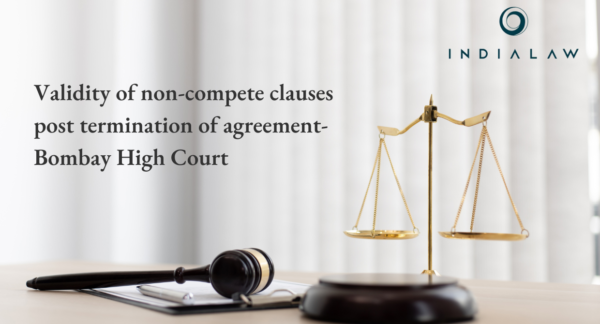The Hon’ble Madras High Court Upholds Rights under the Maternity Benefits Act, 1961, for Contractual Employees


The Hon’ble Madras High Court (“High Court”) recently, reaffirmed the rights guaranteed under the Maternity Benefits Act, 1961 (“Maternity Benefits Act”) for women working as contractual employees1. This significant judgment reinforces women’s entitlements to maternity leave and benefits, regardless of their employment status.
Table of Contents
Background and Factual Matrix
The case originated from a writ petition filed by an association advocating for the rights of staff nurses employed under the National Rural Health Mission (NRHM) in Tamil Nadu. The NRHM scheme, initiated by the Government of India, aims to improve healthcare access in rural areas. The State of Tamil Nadu had recruited over 11,000 staff nurses through competitive examinations, initially offering them a consolidated pay of Rs. 7,000 per month, which was later revised to Rs. 14,000 following a judicial order.
The nurses had been working for over two years and sought maternity benefits of 270 days with pay, as stipulated by the Maternity Benefits Act. However, the State Government denied these benefits, asserting that the nurses were contractual employees and thus not entitled to any leave beyond casual leave.
Contentions Raised by the Parties
The Petitioners contended that the denial of maternity benefits was unlawful, arguing that the nurses, having fulfilled the necessary work duration, should be entitled to the benefits as per the Maternity Benefits Act. They sought a writ of mandamus, directing the State to grant the maternity benefits, including paid leave.
In response, the State Government argued that the nurses were not eligible for such benefits as they were contractual employees. They relied on the appointment and posting orders, which limited the nurses’ leave entitlements to casual leave only.
Court’s Observations
The High Court referred the Hon’ble Supreme Court’s judgement in Dr. Kavita Yadav v. Secretary, Ministry of Health and Family Welfare2, which held that maternity benefits are not confined to the duration of employment. The High Court clarified that maternity benefits extend to contractual employees if they meet the eligibility criteria specified in the Maternity Benefits Act. The High Court noted that the Maternity Benefits Act aims to safeguard women’s rights concerning maternity leave and benefits, promoting a balance between work and motherhood and held that the provisions of this Act take precedence over any contractual terms that attempt to limit these rights.
The Court highlighted two essential sections of the Maternity Benefits Act. Section 5(2) of the Maternity Benefits Act that grants maternity benefits to any woman who has worked for at least 80 days in the preceding twelve months and Section 27 that provides that the provisions of the Maternity Benefits Act override any agreement or contract that seeks to deny or limit maternity benefits.
The High Court concluded that upon meeting eligibility requirements, the employee is entitled to full maternity benefits. The Court explicitly stated that any contractual term limiting maternity benefits would be considered invalid under Section 27 of the Maternity Benefits Act. Consequently, the Court ordered that all pending and future applications for maternity benefits from NRHM nurses on contractual appointments must be reviewed and processed as per Section 5 of the Act within three months from the receipt of the Order.
Author’s Opinion
The High Court’s decision is a landmark affirmation of women’s rights in the workplace, reinforcing that maternity benefits are fundamental entitlements that cannot be curtailed by contractual agreements. This ruling sets a significant precedent for recognizing maternity benefits for contractual employees across India, significantly advancing workplace gender equality.
1 MRB Nurses Empowerment Association v. The Principal Secretary and Ors., W.P.No.27556 of 2018 decided on 18.10.2024
2 Dr. Kavita Yadav v. Secretary, Ministry of Health and Family Welfare (2024) 1 SCC 421




